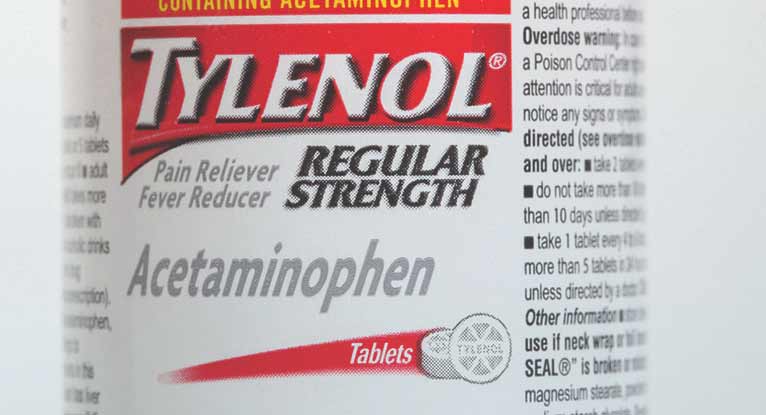

If you experience any of these signs after taking acetaminophen, ibuprofen or naproxen, you should get medical help right away: Those symptoms are just as important as the ones you’re trying to resolve. And be wary of signs of allergic reactions to a drug - which you may not find on a warning label. “That being said, most people can take them at lower doses for short time periods for minor pains and injuries without any serious consequences.”Īlways check the labels for a list of all potential side effects. They can also increase the risk of heart attack in some patients,” Dr. Ibuprofen and naproxen can both cause an upset stomach, kidney damage, high blood pressure and inflammation or bleeding in the stomach. “Acetaminophen has very few side effects. Every medication can present a problem or two. Make an Appointment Should I worry about side effects?Īlthough acetaminophen, ibuprofen and naproxen are all over-the-counter medications, they are not entirely risk-free. Your provider is better for long-term problems. Whatever You Take, Call Us in the Morning So if you’re taking naproxen, be careful not to accidentally take an incorrect dose out of error or habit. Ibuprofen is a short-acting anti-inflammatory that can be taken every six to eight hours - the same dosing schedule as acetaminophen. Naproxen provides long-acting relief, so doses are taken just twice a day. Naproxen and ibuprofen also have their differences. “There's evidence that acetaminophen is specifically not effective for low back pain and knee osteoarthritis, so ibuprofen or naproxen are probably better bets for these.” “In general, pain that is associated with inflammation, like swelling or acute injury, is better treated with ibuprofen or naproxen,” says Matthew Sutton, MD, a Family Medicine physician at The Iowa Clinic’s West Des Moines campus. Acetaminophen only relieves the pain and doesn’t reduce your levels of prostaglandins. Ibuprofen (Advil, Motrin) and Naproxen (Aleve). NSAIDs inhibit the production of prostaglandins, hormone-like lipids that cause your cramps. Take the one that provides you comfort and try the other pill if your pain persists. Ibuprofen or naproxen acts on inflammation, which can be the root of your pain. Its anti-inflammatory properties are better for muscle soreness and body aches that typically stem from inflammation.Īcetaminophen (Tylenol). Some studies show that acetaminophen relieves cold symptoms and a sore throat better than ibuprofen or naproxen.Įither. Ibuprofen (Advil, Motrin) and Naproxen (Aleve). Ibuprofen and naproxen may make your stomach feel worse. If your fever is accompanied by an upset stomach, take acetaminophen. Some people find relief from acetaminophen, others from ibuprofen. It’s the pick for things like sinus infections, arthritis, earaches and toothaches.Įither. The most common of the non-steroidal anti-inflammatory drugs (NSAIDS), ibuprofen or naproxen inhibits the chemicals that cause inflammation in the body.

It provides quick pain relief and is safer to take more for longer periods if your symptoms last. When in doubt, use this guide to help you figure out which medicine to take. Depending on your condition, one is typically better suited than the other. Acetaminophen, ibuprofen and naproxen have different chemical makeups, but the choice between them is not always clear. Ibuprofen and naproxen can do both those things, but they are anti-inflammatory drugs designed to reduce inflammation and swelling.

As you’ve surely seen plastered on every package of Tylenol, acetaminophen is a pain reliever and fever reducer. While these over-the-counter drugs provide similar results, they are not the same. Tylenol, Advil, Motrin, Aleve, store brand generic - it’s all the same, right? You take whatever’s on hand and wait for it to kick in. It’s such a habitual reaction, that you probably don’t even think about your choice. Once you start feeling under the weather, you pop a pill or two of acetaminophen, ibuprofen or naproxen. The first line of defense for your aches, pains and general unrest is the medicine cabinet.


 0 kommentar(er)
0 kommentar(er)
